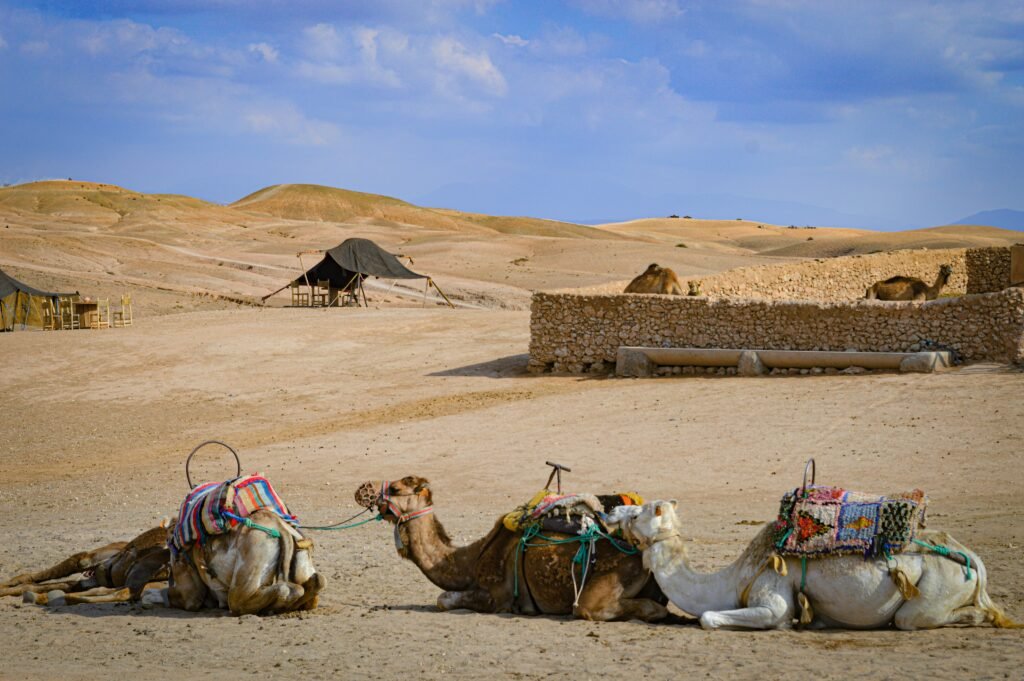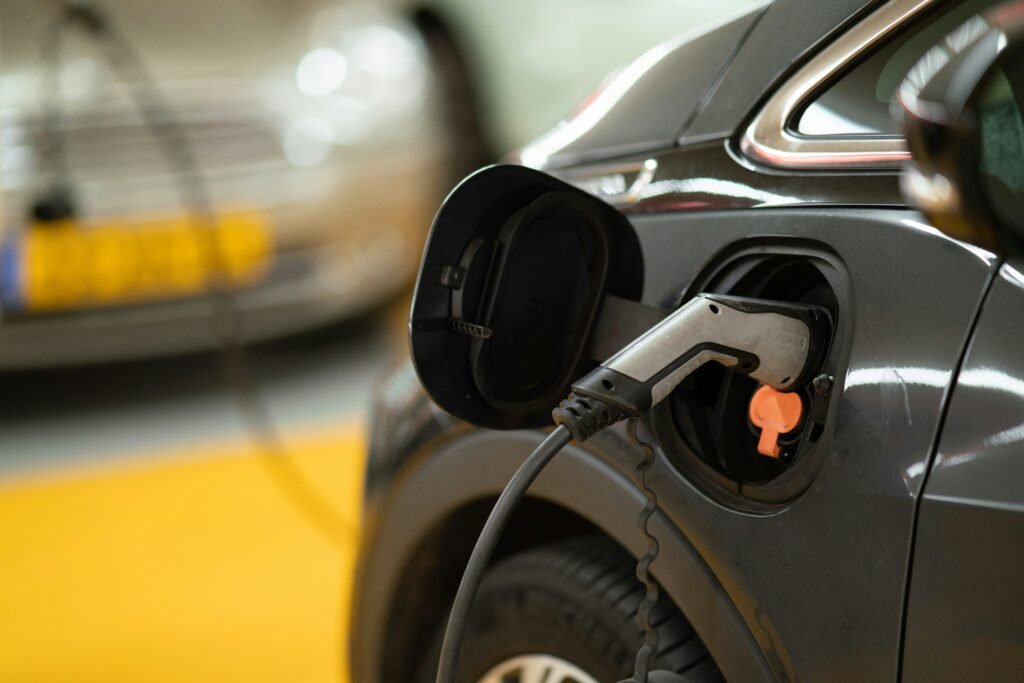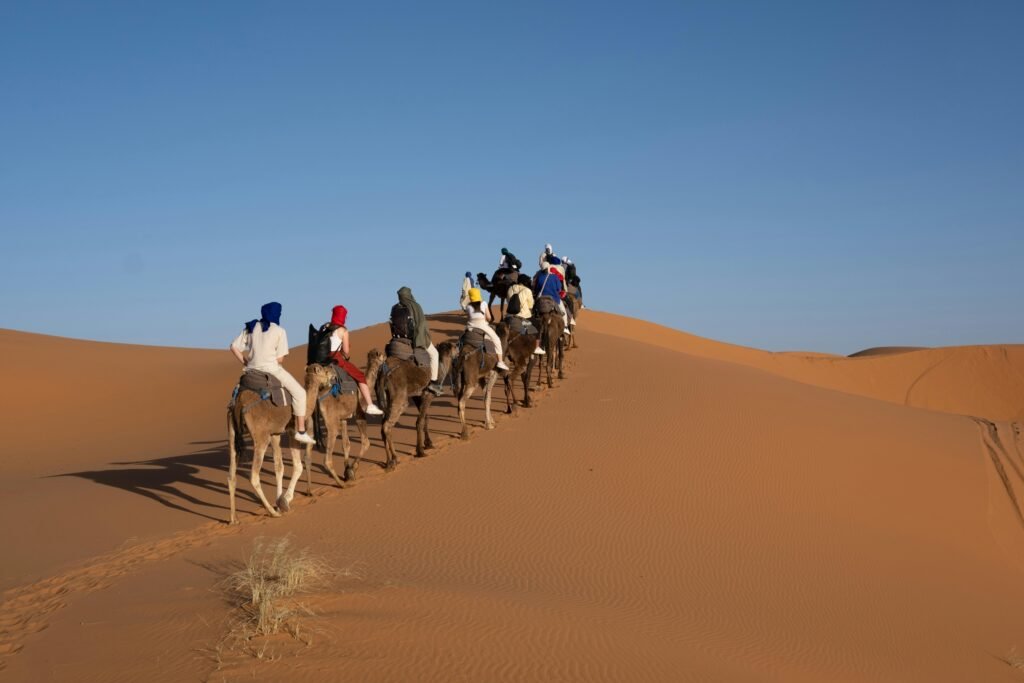Table of Contents
Tourists seek amazing adventures among Morocco’s huge, golden dunes. However, as more tourists visit these stunning settings, the need for sustainable travel grows more essential. Mass tourism threatens the Moroccan Sahara’s sensitive ecosystems, which include endangered fauna, fragile vegetation, and cultural legacy. As a result, eco-friendly transportation has evolved as an essential component of responsible tourism in this region. The method of transportation you pick for your Moroccan desert tour can have a big influence on the environment, local populations, and the preservation of this natural treasure.
In this article, we’ll explore some of the most eco-friendly transportation options for desert adventures in Morocco, blending modern technology with traditional methods to create sustainable and authentic experiences.
1. Camel Trekking: The Ancient Green Choice

No journey to the Sahara is complete without a camel trek. Camels have been the primary form of transportation in the parched desert for generations, and they are still one of the most environmentally beneficial alternatives. Camels, unlike motor vehicles, generate no emissions and have a negligible environmental effect. They are ideally suited to the severe desert circumstances, requiring minimal water and food, and their cushioned feet do not harm the sensitive desert ecology.
Camel trekking also offers a cultural connection to the traditional way of life of the Berber people, who have been living in harmony with the desert for generations. As you gently sway on the back of a camel, you not only reduce your carbon footprint but also gain a deeper appreciation for the resilience and knowledge of the local communities.
For travelers looking to experience the true spirit of the desert, camel trekking is a timeless and sustainable choice.
2. Solar-Powered 4×4 Vehicles: Merging Technology with Sustainability

While camels are ideal for shorter trips, longer distances or more remote locations in the desert may require motorized transportation. Enter solar-powered 4×4 vehicles, a promising solution for eco-conscious adventurers. Traditional fuel-powered vehicles can contribute to pollution, but advances in solar technology have given rise to electric 4x4s powered by renewable energy.
In Morocco, several tour firms are starting to provide solar-powered desert tours. By utilizing the Sahara’s plentiful sunshine, these cars drastically cut carbon emissions while providing a smooth and quiet ride across the dunes. Solar-powered cars also emphasize the possibilities for renewable energy in solar-rich places, demonstrating sustainable tourist practices.
The availability of solar-powered 4x4s is still limited, but as demand for greener travel options grows, more tour operators are expected to adopt this innovative solution.
3. E-Bikes: A Modern Twist on Desert Exploration

Electric bikes (e-bikes) are becoming an increasingly popular eco-friendly transportation option, even in remote areas like the Moroccan desert. E-bikes combine the advantages of traditional bicycles with the added boost of an electric motor, making them an excellent choice for exploring the vast desert landscapes with minimal environmental impact.
Using e-bikes allows tourists to cover more ground without exhausting themselves, all while leaving behind no emissions. They are also quieter than motorized vehicles, which helps minimize noise pollution, making the experience more serene for both tourists and the local wildlife.
Tour companies in Morocco are starting to introduce guided e-bike tours through desert trails, offering a unique blend of adventure, sustainability, and modern technology. E-bikes allow you to connect with nature in a way that feels personal, active, and eco-friendly.
4. Walking Tours: Slow and Low-Impact Adventure
One of the simplest yet most rewarding eco-friendly transportation options for Moroccan desert tours is walking. While it may not seem as exciting as riding a camel or driving an electric vehicle, walking offers an intimate and low-impact way to explore the desert. Walking tours are especially popular in areas where the landscape is rich with cultural or historical significance, such as ancient ruins, oases, and nomadic encampments.
By walking, you not only reduce your carbon footprint to zero but also immerse yourself fully in the environment. The slower pace allows for deeper connections with the land and people, providing a more reflective and mindful travel experience. Walking tours can be customized to suit different fitness levels, and local guides often accompany travelers, sharing their knowledge of the desert’s natural and cultural heritage.
5. Horseback Riding: A Noble and Eco-Friendly Tradition
Though camels are more commonly associated with desert travel, horseback riding is another traditional and sustainable way to explore the Moroccan Sahara. Horses have been used in North Africa for centuries, and they remain a viable, eco-friendly option for tourists. Like cattle, horses do not require fuel and have a minimal impact on the environment.
Horseback riding tours offer a different perspective of the desert, allowing you to move gracefully across the dunes while feeling a deep connection to nature. Many tours take travelers to remote and scenic locations that are not easily accessible by vehicle, making horseback riding an exciting option for eco-conscious adventurers who seek off-the-beaten-path experiences.
6. Shared Transport: Reducing Individual Footprints
For those who prefer motorized transport but still want to reduce their environmental impact, shared transportation options are available. Whether it’s a minivan, bus, or 4×4 vehicle, joining a group tour instead of opting for a private vehicle can significantly lower the per-person carbon footprint. Shared transport not only reduces emissions but also supports more efficient use of resources, such as fuel and energy.
Many tour operators in Morocco offer small group tours, providing a more personal and environmentally friendly experience. Shared transport also creates opportunities for social interaction and cultural exchange, enriching the overall travel experience.
The Road Ahead for Sustainable Tourism in the Sahara
The push for eco-friendly transportation options in Moroccan desert tours is part of a larger movement towards sustainable tourism. Tourists are increasingly aware of the impact their travel choices have on the environment, and they are seeking ways to reduce their footprint while still enjoying unique and authentic experiences. From camel trekking and solar-powered vehicles to e-bikes and walking tours, the options for sustainable travel in the Sahara are expanding.
As we look to the future, continued innovation in green technology and increased awareness among travelers will drive further improvements in the sustainability of desert tourism. For Morocco, with its rich cultural heritage and stunning natural beauty, embracing eco-friendly transportation not only protects the environment but also ensures that future generations can enjoy the magic of the desert for years to come.
Whether you are drawn to the timeless appeal of camel trekking or the modern allure of solar-powered vehicles, eco-friendly transportation options offer the perfect way to explore the Moroccan desert while honoring its unique and fragile ecosystem.



